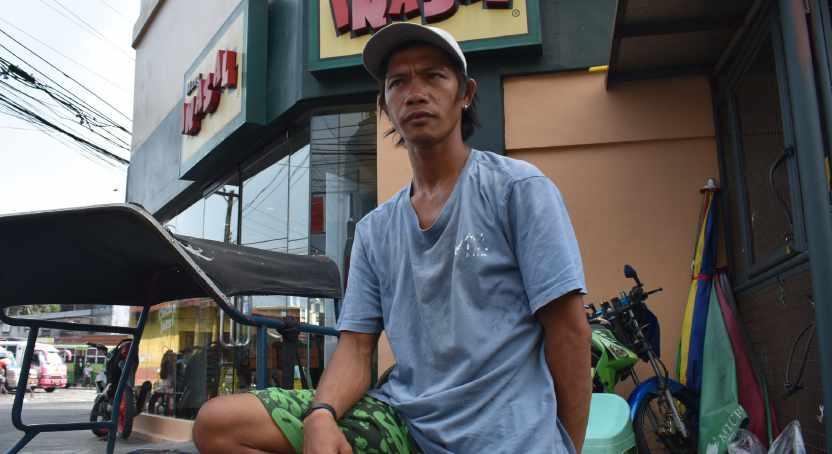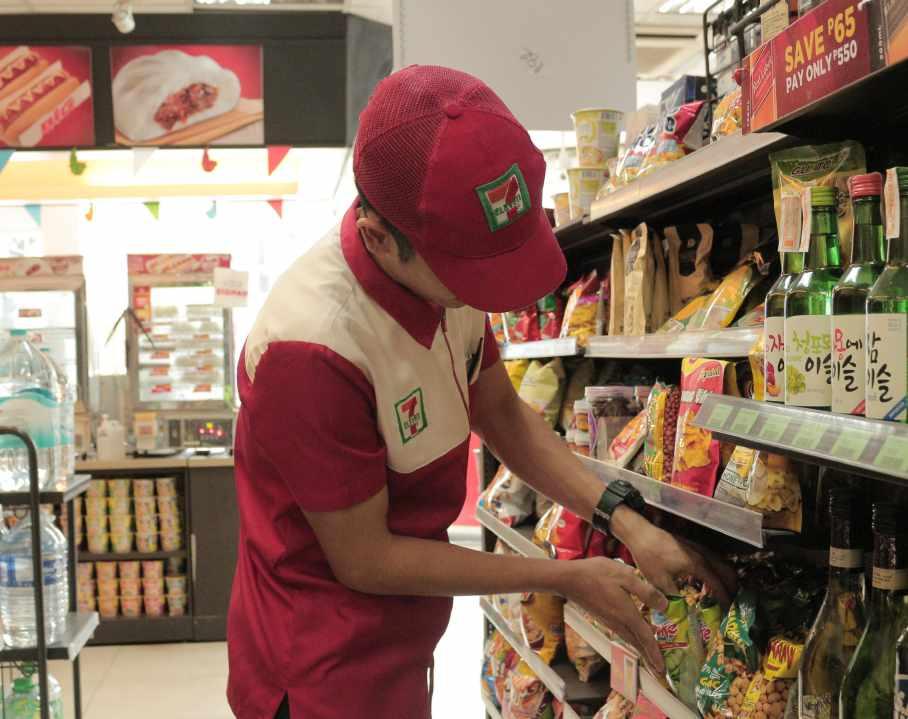
5 minute read
THE INFINITE CHAINS OF OUR BEING FOR A BETTER LIVING
from Seasons
Hustle and bustle. Libertad Public Market patrons and vendors spend some time on the streets buying and peddling for a living.
WORDS BY ALEA JEN VILLAHERMOSA PHOTOS BY RAEVERLY ELENA RAMIREZ
Advertisement
Walking down a street, hearing the non-stop questions of street vendors asking if one would want an apple or an orange, seeing the splashing of murky grey waters as vehicles pass, and smelling the scent of sweat filling the air – a place where it is unpleasant to the senses – has been a normal part of our everyday routine.
The busy streets of Libertad South Market, Bacolod City, reflect the continuous struggle of its people – a home for laborers. And, sometimes, it feels heart-warming to understand that most people still strive to survive a day-to-day life despite the painful struggles.
In a year, people often work for 8 to 10 months while others would have to work all year round; they are the non-seasonal workers.
Have you ever thought of how it would feel to work during Christmas day or New Year’s Eve? Doleful, it is.

DIFFERENT FIGURES, SAME WEIGHT
Hunger, disease, and lack of employment are rotten fruits to the society. A study published by the Asian Development Bank states that the causes of poverty include high inflation during the crisis period, weakness in employment generation, and the quality of jobs generated.
Amidst the poverty, Filipinos still uphold resilience and hard work – the policeman securing everyone’s safety, the jeepney driver completing routes for the whole day, the vendors selling until nighttime. They may have different faces to show yet it is the will to go on that connects their fates in life.
WHEELS OF TIME
Trisikad rides are a relief to frustrating times of walking not-so-far destinations. As the drivers’ services are a holy grail for passengers, their continuous patronage is also the drivers’ blessings.
Jaype Clavecillas, a trisikad driver for 12 years, stations near Mang Inasal-Libertad with his fellow trisikad drivers. The bicycle he drives is worn-out that it cranks and the handles show slight rusting. In his long years of working, Manong Jaype has almost encountered every personality. The most common is a stingy passenger which he often lets them slide. Huya runs in his veins that he does not ask for more payment and is unable to say no to them.
As a father of two elementary students and a husband of a part-timer in a local hotel, Manong Jaype bashfully shares the burden and bliss of raising a family. The hours between four
o’clock in the morning until four in the afternoon are sacred to him as his feet continue to push the pedals, enduring the numbness on his back, legs, and shoulders.
He can only muster two days of rest at most in a year – a cherry on top of his bittersweet life.
“You are already set for a living,” Manong Jaype shares as he gazes at the streets where the revving noise from the engines permeates.
As he talks about his priorities in life, Manong Jaype lets out a soft laugh as if he were searching for it, too.
“I am happy that I do not have to pay rent [of the trisikad]. I earn so that we have food on our table – I think that is the most important thing,” Manong Jaype says.
Like reading a storybook to a child, he continues telling details of his life. Words escaping his mouth can be compared to the wheels of Manong Jaype’s trisikad – neverending and full of twists and turns.

A LOT IN STORE
Convenience stores become everyone’s daily mini-mall when rushing to buy a few stuff. The time spent by every customer is the exact opposite of the workers’ – short as to neverending.
Phillip John Pajari-on, a young man working at 7-Eleven Libertad turns nights into days in his shifts in the 24-hour store.
“Tiring but you cannot do anything but to work overtime because you do not have a choice,” he shares his situation as a part-time shopboy, working to send his younger sister to college.
Surprises come in different packages, either neatly wrapped or oddly taped together, and John is not an

exception on receiving the latter. It was Sunday morning when a tough-looking man entered the store with nothing and left with a handful. All employees had no choice but to accept the punishment of paying for what was stolen which was hard on their part for their salary was not that big.
To add to John’s awful experience, during one of his shifts, an older man approached him to pay for his cigarettes. He was not in charge of the counter, so he refused. Like a burning cigarette, John’s refusal triggered the man’s anger resulting in shouts and curses echoing in the four corners of the store.
Embarrassed in front of the customers, “I’m sorry sir,” was all John can say.
After that, John went to the racks and arranged the groceries as if it were his way of putting back the pieces of his life.

ON RAINY DAYS AND NIGHTS
La Niña in the Philippines is one of the things Filipinos commonly dread, especially Manong Jaype and John.
On rainy days and nights, the flood in Libertad South Market gets sometimes knee-deep that it leaves them with the only option of walking through it. Perhaps, they

could relate to the flood – a dark life that still continues to flow.
On sunny days and warm nights, the heat of the air may remind them of the tender embrace of their loved ones waiting at home. Life in the city’s gritty parts such as Libertad South Market warrants recognition for it is one of the things that fuels our daily lives in the urban jungle. Lives like those of Manong Jaype’s and John’s represent the daily struggle of the average Filipino and, more importantly, that of the laborers. People like them are the reasons why we are not short of convenience. For that, we salute them.



